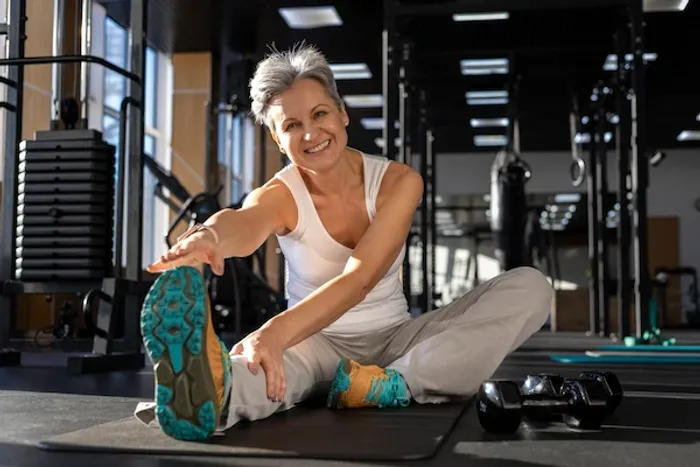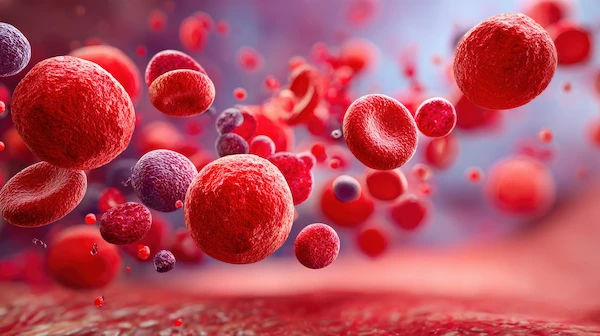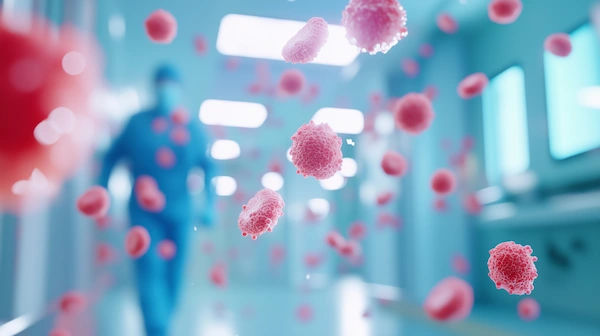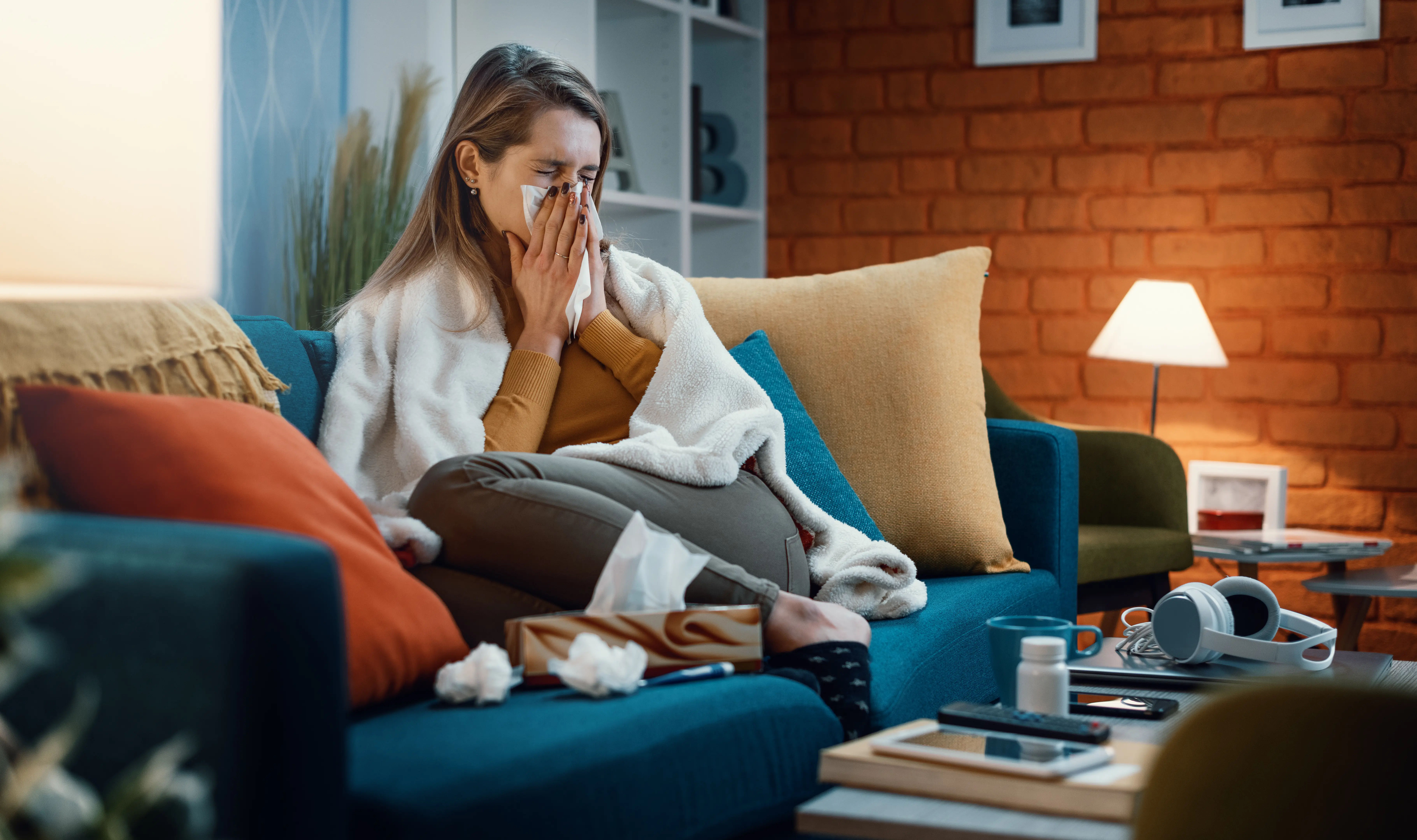Your Ultimate Guide to Women's Health and Fitness
Know about women's health and fitness, foundation pillars for women, influence on emotional and physical well-being, strength training and women's wellness through different life stages and more.

Written by Dr. J T Hema Pratima
Reviewed by Dr. Rohinipriyanka Pondugula MBBS
Last updated on 13th Jan, 2026

Introduction
Navigating the world of women's health and fitness can feel overwhelming. With endless information on diets, workout trends, and wellness tips, it's hard to know where to start. But what if it wasn't about quick fixes or fitting a mold? True wellness is about building a sustainable, joyful practice that honours your unique body and its needs through every chapter of life. This guide moves beyond calorie counting and intense workouts to explore a holistic approach to women's health. We'll delve into the powerful synergy of nutrition, purposeful movement, mental well-being, and restorative sleep. Whether you're a fitness newbie or looking to deepen your practice, this article will provide the strategies and insights you need to feel strong, energised, and empowered from the inside out. Let's begin the journey to a healthier, more vibrant you.
Foundational Pillars of Women's Wellness
Achieving optimal health isn't about mastering one thing; it's about building a solid foundation upon several key pillars. When these elements work in harmony, they create a powerful framework for lifelong vitality and disease prevention.
Nutrition: Fueling Your Body Right
Food is more than just fuel; it's information for your body. For women, specific nutritional needs are crucial for supporting hormone function, energy levels, and long-term health.
Consult Top Specialists for Personalised Health Advice
Macronutrients: Protein, Carbs, and Healthy Fats
The era of fearing carbs and fats is over. A balanced intake of all three macronutrients is essential.
- Protein: Vital for muscle repair, hormone production, and satiety. Aim for sources like lean chicken, fish, eggs, legumes, lentils, and tofu. A general guideline is to consume 1.6 to 2.2 grams of protein per kilogram of body weight for active women.
- Carbohydrates: Your body's primary energy source. Focus on complex carbs like whole grains, oats, quinoa, sweet potatoes, and fruits, which provide sustained energy and fibre.
- Healthy Fats: Critical for brain health, hormone synthesis (including estrogen and progesterone), and absorbing fat-soluble vitamins. Include avocados, nuts, seeds, olive oil, and fatty fish like salmon in your healthy meal plan for women.
Micronutrients: The Vital Role of Iron, Calcium, and Vitamin D
Women are disproportionately affected by deficiencies in key micronutrients.
- Iron: Essential for carrying oxygen in the blood. Women menstruating are at a higher risk of deficiency, which can lead to fatigue and anaemia. Find it in red meat, spinach, lentils, and fortified cereals.
- Calcium and Vitamin D: The dynamic duo for bone health. Calcium builds strong bones, while Vitamin D ensures calcium is absorbed properly. As estrogen declines with age, the risk of osteoporosis increases, making this pair non-negotiable. Dairy, leafy greens, and fortified foods are great calcium sources. Get Vitamin D from sunlight, fatty fish, and supplements if needed. Apollo24|7 offers convenient home collection for tests like vitamin D or HbA1c if you suspect a deficiency.
Physical Activity: More Than Just Weight Loss
Exercise is a powerhouse tool for preventing chronic diseases like heart disease, diabetes, and certain cancers. It boosts mood, improves sleep, and enhances overall quality of life. The goal is to find movement you enjoy, making consistency effortless.
Mental and Emotional Wellbeing: The Mind-Body Connection
You can't have true physical health without mental health. Chronic stress elevates cortisol levels, which can disrupt hormonal balance, promote abdominal fat storage, and impact mental clarity. Incorporating women's mental health tips like meditation, journaling, spending time in nature, or simply connecting with friends is not indulgent—it's essential for a holistic health strategy.
Designing Your Woman-Centric Workout Plan
A well-rounded fitness routine for women includes four key components. Balancing these elements will ensure you build strength, protect your heart, maintain mobility, and avoid burnout.
The Non-Negotiable: Strength Training for Women
Forget the myth of "bulking up." Strength training for women over 40 and under is arguably the most important form of exercise. It increases lean muscle mass, which boosts metabolism, strengthens bones (preventing osteoporosis), improves posture, and enhances functional strength for daily life. Aim for 2-3 sessions per week, focusing on compound movements like squats, lunges, push-ups, and rows.
Cardiovascular Health: Finding Your Rhythm
Cardio exercise strengthens your heart and lungs and improves circulation. This can include anything from brisk walking, swimming, and cycling to dancing or hiking. The key is to mix steady-state cardio (where you can hold a conversation) with shorter bursts of high-intensity interval training (HIIT) to maximise heart health and calorie burn.
Flexibility and Mobility: The Keys to Longevity
As we age, maintaining a range of motion becomes critical for preventing injury and pain. Practices like yoga and Pilates are fantastic for improving flexibility, core strength, and balance. They also serve as a moving meditation, reducing stress and connecting the mind and body. Incorporating even 10 minutes of stretching daily can make a significant difference.
Rest and Recovery: Why It's Just as Important as the Workout
Muscles grow and repair when you rest, not when you train. Overtraining can lead to injury, hormonal imbalances, and fitness plateaus. Ensure you have at least 1-2 full rest days per week. Active recovery, like a gentle walk or yoga, can also be beneficial. Prioritising sleep is a cornerstone of recovery; it's when your body performs its most critical repair work.
Navigating Health Through Different Life Stages
A woman's body undergoes significant changes, and your health strategy should adapt accordingly.
Fitness in Your 20s and 30s: Building a Strong Foundation
This is the prime time to build peak bone density and muscle mass. Focus on establishing healthy habits: a balanced diet, a mix of strength and cardio, and stress management. This foundation will pay dividends for decades to come.
Health in Your 40s and 50s: Hormones, Metabolism, and Strength
Perimenopause and menopause bring shifting hormones, often leading to a slower metabolism and changes in weight distribution. This is not the time to abandon strength training; it's the time to embrace it even more to combat muscle loss and support metabolic health. Focusing on hormonal balance through nutrition (e.g., reducing sugar and processed foods) and managing stress becomes paramount.
Thriving in Your 60s and Beyond: Focus on Mobility and Bone Health
The focus shifts to preserving functional independence. Improving bone density naturally through weight-bearing exercise and adequate calcium/Vitamin D intake is crucial. Balance exercises (like Tai Chi) to prevent falls, along with consistent mobility work and strength maintenance, should be the priorities.
Beyond the Gym: Lifestyle Factors for Optimal Health
The lifestyle factors for optimal health include:
Sleep: The Ultimate Recovery Tool
Aim for 7-9 hours of quality sleep per night. Poor sleep disrupts hunger hormones (ghrelin and leptin), increases cortisol, and hinders recovery. Establish a regular sleep schedule and a calming bedtime routine.
Stress Management Techniques That Work
Find what helps you decompress. This could include deep breathing exercises, a yoga class for women, reading a book, or pursuing a hobby. Chronic, unmanaged stress undermines all other health efforts.
Conclusion
Your journey to optimal women's health and fitness is exactly that—a personal journey. It's not about perfection; it's about progression. It's about making more choices that energise, strengthen, and bring you peace, rather than those that don't. By embracing a holistic approach that includes purposeful movement, nourishing foods, quality rest, and dedicated self-care, you are investing in the most important asset you have: yourself. This guide provides the roadmap, but you are in the driver's seat. Start with one small change today. Celebrate your victories, learn from the setbacks, and always remember that every step forward is a step toward a healthier, happier you. If you have specific concerns about your hormonal health or bone density, consult a doctor online with Apollo24|7 for further evaluation and personalised guidance.
Consult Top Specialists for Personalised Health Advice
Consult Top Specialists for Personalised Health Advice

Dr. Shubham Chauhan
General Practitioner
4 Years • MBBS
Lucknow
Apollo 24|7 Clinic - Uttar Pradesh, Lucknow

Dr. Syed Ismail Ali
General Practitioner
7 Years • MBBS
Hyderabad
Apollo 24|7 Clinic, Hyderabad

Dr Aakash Andgi
General Physician/ Internal Medicine Specialist
9 Years • MBBS MD
Bengaluru
Apollo Clinic, JP nagar, Bengaluru

Dr Syed Mateen Pasha
General Physician
2 Years • MBBS
Bengaluru
PRESTIGE SHANTHINIKETAN - SOCIETY CLINIC, Bengaluru

Dr. Anand Ravi
General Physician
2 Years • MBBS
Bengaluru
PRESTIGE SHANTHINIKETAN - SOCIETY CLINIC, Bengaluru
Consult Top Specialists for Personalised Health Advice

Dr. Shubham Chauhan
General Practitioner
4 Years • MBBS
Lucknow
Apollo 24|7 Clinic - Uttar Pradesh, Lucknow

Dr. Syed Ismail Ali
General Practitioner
7 Years • MBBS
Hyderabad
Apollo 24|7 Clinic, Hyderabad

Dr Aakash Andgi
General Physician/ Internal Medicine Specialist
9 Years • MBBS MD
Bengaluru
Apollo Clinic, JP nagar, Bengaluru

Dr Syed Mateen Pasha
General Physician
2 Years • MBBS
Bengaluru
PRESTIGE SHANTHINIKETAN - SOCIETY CLINIC, Bengaluru

Dr. Anand Ravi
General Physician
2 Years • MBBS
Bengaluru
PRESTIGE SHANTHINIKETAN - SOCIETY CLINIC, Bengaluru
More articles from General Medical Consultation
Frequently Asked Questions
What is the best exercise for women's weight loss?
There is no single 'best' exercise. The most effective routine combines strength training (to build muscle and boost metabolism) with cardiovascular exercise (to burn calories). However, the best exercise is ultimately the one you enjoy and will stick with consistently.
How can I exercise with hormonal imbalances like PCOS or thyroid issues?
For conditions like PCOS, a combination of moderate-intensity cardio and strength training can help improve insulin sensitivity. For thyroid issues, listening to your energy levels is key. If your condition does not improve after trying these methods, book a physical visit to a doctor with Apollo24|7 to create a tailored plan that considers your specific hormonal profile.
I'm over 50. Is it too late to start strength training?
Absolutely not! It's never too late to start. Strength training for women over 40 and 50 is crucial for combating age-related muscle loss (sarcopenia), maintaining bone density, and preserving independence. Start with light weights and focus on proper form, perhaps with guidance from a trainer.
How much protein do I really need?
A general recommendation for active women is between 1.6 and 2.2 grams of protein per kilogram of body weight. For a 68 kg (150 lb) woman, this translates to approximately 109-150 grams of protein per day, spread across meals.
What are the signs of overtraining?
Signs include persistent muscle soreness, fatigue, irritability, insomnia, a plateau or decrease in performance, increased frequency of illness, and loss of motivation. If you experience these, prioritise rest and recovery.




